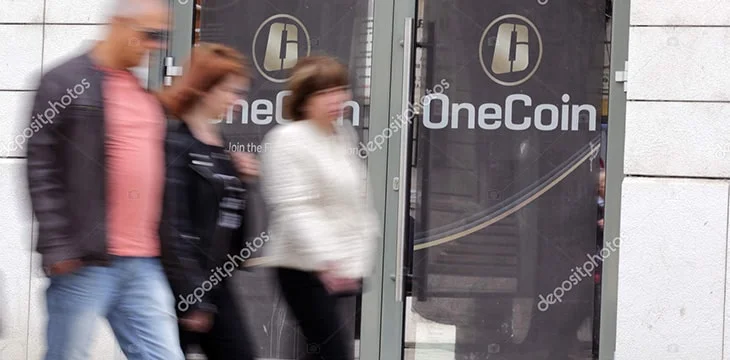Okay, let’s dive into a corner of the crypto world that’s less about moonshots and more about…well, let's just say it's about as far from decentralization and democratization as you can get: the rise and fall of crypto scams and the ongoing quest to bring their perpetrators to justice.
It’s easy to get caught up in the excitement of blockchain and digital currencies, the potential for financial freedom and innovative technologies. I mean, I get it. I do! But we can't ignore the darker side. The sheer volume of scams popping up, preying on people's hopes and dreams, is frankly, alarming. And it’s not just small-time operations; we're talking billions of dollars stolen, lives ruined, and a serious dent in the public's trust in the entire crypto ecosystem.
We've got the case of Qian Zhimin, a Chinese woman who managed to siphon off $6.5 billion in a crypto scam, primarily targeting pensioners, before setting up shop in a London mansion. Eleven years in jail is a start, but does it truly compensate the victims? And then there’s the US government charging another Chinese man with a $14 billion fraud scheme operating out of Cambodia. It’s like a never-ending game of whack-a-mole, isn’t it? How can we build a sustainable, trustworthy crypto future when these kinds of stories keep dominating the headlines?
But perhaps the most infamous of them all is the saga of Ruja Ignatova, the so-called "Cryptoqueen" behind OneCoin.
Think of OneCoin as the Theranos of crypto – all hype, no substance, and a whole lot of smoke and mirrors. Ignatova promised a revolutionary cryptocurrency, but in reality, it was a Ponzi scheme dressed up in tech jargon. And get this: Bjørn Bjercke, a blockchain expert, was actually approached to build OneCoin's blockchain after it launched! Can you believe the audacity? He saw right through the scam, of course, and went public, even facing threats for doing so.
The scale of the OneCoin fraud is mind-boggling. Millions of people were swindled out of billions of euros. And Ruja Ignatova? She vanished in 2017 and hasn't been seen since.
It’s like she simply evaporated into thin air.
But let's be clear: this isn’t just about one bad apple. The OneCoin scandal exposed a systemic problem within the crypto world – a lack of regulation, a culture of hype over substance, and a desperate desire for quick riches that blinds people to the obvious red flags.
Now, here's where things get interesting and, frankly, a little unsettling. Despite being on the FBI's Most Wanted list, and presumed dead at one point, there are whispers that Ignatova might still be alive. Some even speculate she's hiding out in South Africa. It's a real-life thriller, isn't it?

And what about Frank Schneider, Ignatova's head of security, a former intelligence agent from Luxembourg? He's also gone missing, presumably to avoid extradition to the US. It’s like a spy novel come to life!
The German authorities are still pursuing the case, even indicting Ignatova in absentia to prevent the statute of limitations from expiring. But without her in custody, there can be no trial. So, the question remains: Will justice ever catch up with the Cryptoqueen? Fugitive ‘cryptoqueen’ Ruja Ignatova indicted in Germany
The lack of regulation is a recurring theme here. Cryptocurrency, by its very nature, exists outside the traditional financial system. That's part of its appeal, of course, but it also makes it a haven for scammers. It’s the Wild West of finance, and we desperately need sheriffs to bring some order to the chaos.
We need clear, enforceable regulations that protect investors without stifling innovation. We need greater transparency and accountability within the crypto industry. And we need to educate the public about the risks involved so they don't become easy prey for these fraudsters.
The story of Ruja Ignatova and OneCoin is a cautionary tale, a stark reminder that not everything that glitters is gold, or in this case, Bitcoin. But it’s not all doom and gloom. The fact that authorities are still pursuing these criminals, years after their schemes collapsed, shows that justice, however delayed, is still possible.
And let's not forget the heroes like Bjørn Bjercke, who risked their own safety to expose these scams. They are the beacons of hope in the fog of deceit, the ones who remind us that integrity and truth still matter, even in the fast-moving world of crypto. This reminds me why I got into technology, the possibility to use it to make the world a better place.
What if we could harness the power of blockchain itself to fight fraud? Imagine a decentralized system for verifying the legitimacy of crypto projects, a community-driven platform for flagging scams and sharing information. It's a long shot, I know, but the potential is there.
And what about the ethical considerations? As technology advances, we must ask ourselves: Are we building a future that benefits everyone, or just a select few? Are we creating systems that empower individuals, or ones that leave them vulnerable to exploitation?
The crypto world is at a crossroads. We can either continue down the path of unchecked greed and rampant fraud, or we can choose a different path – a path of transparency, accountability, and ethical innovation. The choice, my friends, is ours.